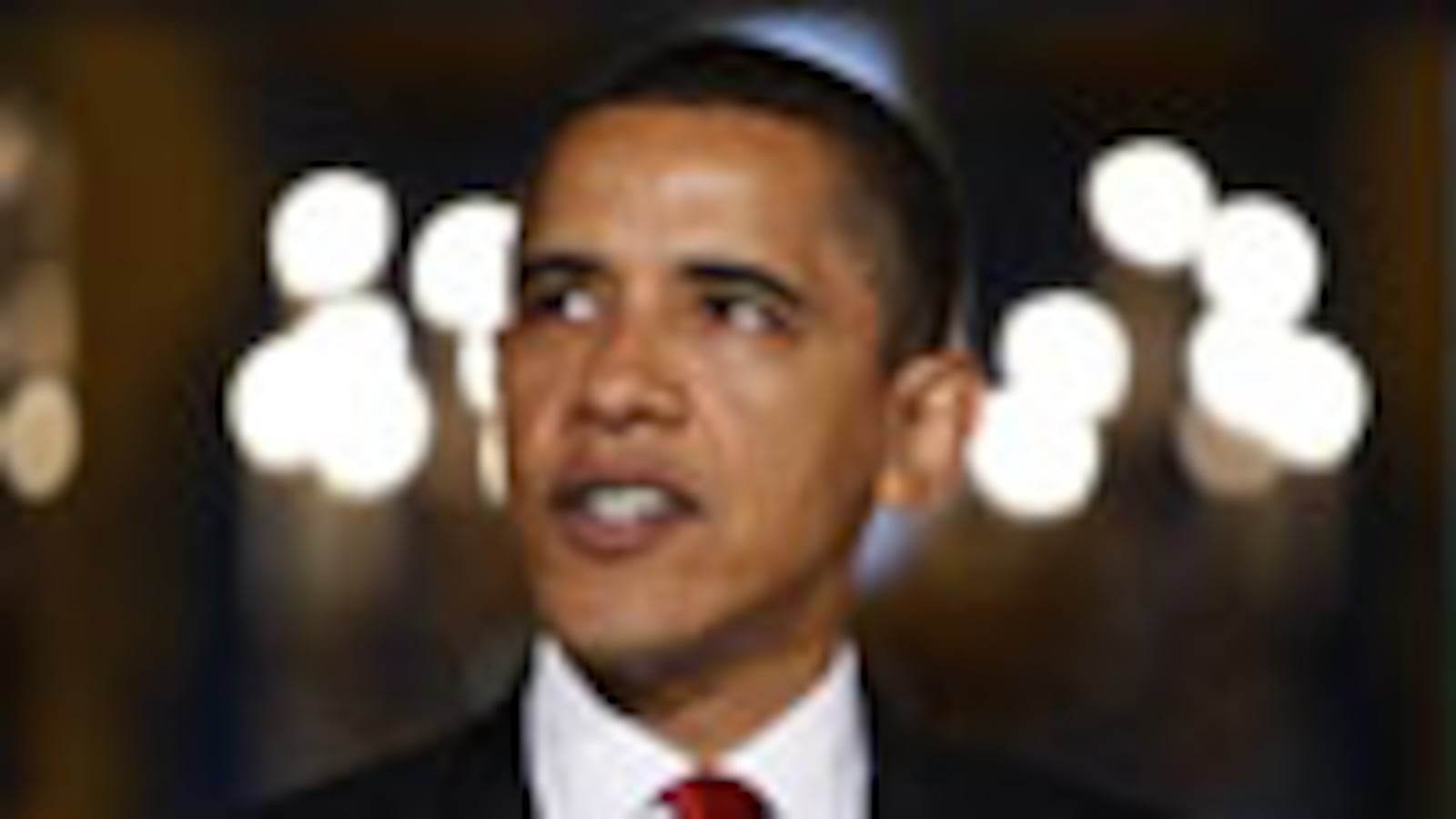
Later this week, the Obama administration is expected to release the details of its budget proposal, the broad outlines of which passed Congress yesterday with no Republican votes. A lack of bipartisan support is becoming customary, but the specific terms of the debate are interesting. As The Hill reported: "Republicans blasted the budget as a turn toward a bigger-government philosophy prevalent in Europe." Obama's proposals, in other words, aren't just bad. They're downright un-American! But political attacks can sometimes have surprising results. Thus, the main impact of the conservative movement's months-long campaign to brand Barack Obama a dangerous radical who's going to bring European-style socialism to the United States has been raising poll numbers for socialism, especially among the young. After all, the term is fairly vague, but people have concrete opinions about Obama (they like him) and about his antagonists (they don't like them) so if Obama's for socialism, the thinking goes, it can't be all bad.
Americans cling to the idea that inequality and sky-high child poverty rates are the price we have to pay for the social mobility we crave. In fact, the reverse is true.
Optimistically, a secondary effect of Republican attacks will be to get people thinking more seriously about a European-style welfare state which, despite ossified conventional wisdom, is in many ways exactly what we need.
Relatively sluggish European growth in the 1990s gave the continent a reputation for economic dysfunction. But back in January 2008—i.e., before the dawn of the current recession—Paul Krugman observed that during the most recent economic upswing, job growth in Europe was more robust than in the U.S. More recently, Russell Shorto wrote over the weekend in The New York Times Magazine about how despite his initial shock at the high tax rates in the Netherlands, he's since come to love the European welfare state.
Shorto saw some downsides, for example, "a cultural tendency not to stand out or excel" that he deemed "the very antithesis of the American ideal of upward mobility."
But what about that ideal? There's a considerable tension, as Ezra Klein points out, between America's strong belief in social mobility and the reality that we don't have very much of it. A recent Brookings/Pew report showed that in the U.S., 69 percent of the population agrees that "people get rewarded for intelligence and skill." That's the highest of the 25 countries they surveyed. However, the same report showed that there is less economic mobility in the U.S. than in virtually any other developed nation: "Germany is 1.5 times more mobile than the United States, Canada nearly 2.5 times more mobile, and Denmark three times more mobile." Only the U.K. clocks in with slightly less mobility than the U.S.
It turns out that the European welfare state isn't just a nice way to lend a helping hand. It does much more to promote intergenerational upward mobility than does an American positive attitude and a culture of achievement. The three most mobile countries in the survey were Denmark, Norway, and Finland—Scandinavian social democracies with cradle-to-grave public services. Four- and five-year-olds in Finland, for example, mostly attend high-quality publicly subsidized preschools irrespective of income, with poor children and rich children getting education that's of equal quality. In the U.S., good center-based child care costs over $10,000 a year—beyond the reach of many parents. Consequently, we have class stratification already in place on the first day of kindergarten. The situation isn't helped by the fact that our system sends the least-experienced, least-qualified teachers to the poorest schools. Nor by the fact that to grow up in a poor neighborhood in the United States means not only to grow up with humble homes, but to grow up in a dangerous environment. Europeans can avail themselves of excellent public transportation while Americans too poor to own a car suffer from crippling social and economic disadvantages, and European citizens from all walks of life can enjoy basically similar levels of health care.
It's true that on the flipside we've created the best place in the world to be rich. Our tax code is progressive, but the overall rates are low. So not only does a rich person have enough left in his pocket to buy time at a nice preschool for his kids, but he can know that the preschool is better than what other people are getting. And who doesn't want to give their family a leg up? Private school or a big house in an expensive town with good public schools has much the same effect. Throw in a lack of public funding for campaigns so that politicians are dependent on your largesse, and you've got it made.
This doesn't, however, work out all that well for the rest of us. The U.S. has spent a huge portion of its history as the richest nation on earth, largely thanks to the highest levels of educational attainment in the world. We're so accustomed to that status, in fact, that there's little awareness that it's anything other than a natural part of the universe. But while the U.S. remains richer than most European countries, our educational lead has slipped away and there's good reason to believe that average living standards are now higher in the Netherlands and Scandinavia. But Americans cling to the idea that inequality and sky-high child-poverty rates are the price we have to pay for the social mobility we crave. In fact, the reverse is true—those are the very things that have made the United States an unusually class-stratified society.
Right now, all these facts are obscure. But if the right wants to have this debate, people will learn more about the not-so-dark continent and I think they'll like what they see.
Matthew Yglesias is a fellow at the Center for American Progress Action Fund. He is the author of Heads in the Sand: How the Republicans Screw Up Foreign Policy and Foreign Policy Screws Up the Democrats.






